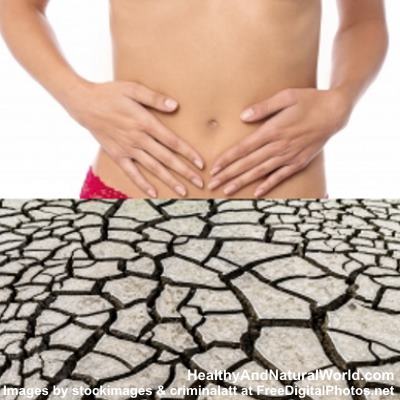Vaginal dryness: causes and solutions
Vaginal dryness is a common problem faced by most women (around 17% of women aged 18-50 experience problems with vaginal dryness during sex, even before the menopause takes place). While the vagina is a self-cleansing organ, it is also important to clean the discharge from time to time to avoid smells and irritation. However, vaginal dryness is treated as a medical condition.
Vaginal dryness can lead to the following experiences:
- Sex becomes painful and women may experience bleeding or spotting during or after sex.
- Vaginal soreness (may also have itching or burning sensation)
- Frequent urination and urinary urgency
Causes of vaginal dryness:
- Medications: Allergy and cold medications containing antihistamines as well as asthma medications can have a drying effect inside the body and cause reduced vaginal lubrication. Some types of contraception (the combined contraceptive pill and contraceptive injection) can occasionally cause vaginal dryness, although this is uncommon. Cancer treatment (radiotherapy) on the pelvic area, hormonal cancer treatments, and sometimes chemotherapy can cause vaginal dryness
- Insufficient arousal: In some cases, vaginal dryness may be caused by a low libido or deep-rooted sexual differences with your romantic partner. Early ejaculation or poor performance can contribute to vaginal dryness.
- Menopause: Decreased levels of the hormone estrogen during menopause can cause vaginal dryness (condition known as vaginal atrophy or atrophic vaginitis)
- Breastfeeding or childbirth: Estrogen levels may temporarily decrease after giving birth, leading to vaginal dryness.
- Irritants: The chemicals in synthetic products like soaps, hygiene products, dyes, and perfumes may cause problems. Allergies to detergents and soaps, irritants on things like underwear or towels sometimes even lubricants and objects that may be placed in the vagina, can cause dryness
- Vaginal dryness is also sometimes caused by medical conditions such as diabetes or Sjögren's syndrome (the immune system attacks the glands in the body that produce fluid).
- Anxiety: Psychological and emotional factors like stress and anxiety can also interfere with sexual desire, leading to vaginal dryness. Anxiety causes insufficient blood flow, and in turn, dryness.
Treatment of vaginal dryness
- Use of Lubricants: Silicone-based, oil-based, and water-based products may be used as lubricants. However, lubricants are usually used to make sex less uncomfortable, rather than for long-term vaginal lubrication. Water-based lubricants help add moisture to the vaginal lining. Their effectiveness can last for hours at a time, making them a good alternative when dryness causes discomfort during sexual intercourse.
- Vaginal moisturizers: These can be used to relieve symptoms for up to three days with just one application. Moisturizing agents introduce water into the tissue of the vagina.
- Fatty Diet: A diet high in fatty acids may aid in producing additional vaginal lubrication. Raw pumpkin, sesame seeds, sunflower seeds, and fish (especially salmon, mackerel and tuna) are great choices that are high in fatty acids. Food which can help regulate declining estrogen levels such as flaxseed, soy, legumes, cherries, nuts, apples and celery in addition to multivitamin/multimineral with additional B complex vitamins can help .
- Water: Drinking plenty of fluids, especially water, is good for the skin and also helps moisten vaginal lining (after all, the lining of the vagina is basically skin).
- Regular exercise: Regular forms of exercise (such as cardiovascular activity) is also important, it helps maintain blood flow (to the vagina, as well) and also hormone balance. Estrogen and testosterone have a direct effect on vaginal atrophy and dryness.
- Wild yam: This is another supplemental ingredient that promises to relieve dryness, as it displays hormone-like activity, increasing estrogen, and offering a possible explanation for why it can support healthy vaginal lubrication.
WHL TIP: The vagina is a self-cleansing organ. One should not use soap or other products to clean it. Many doctors advise that wiping the vagina dry is a bad practice.
